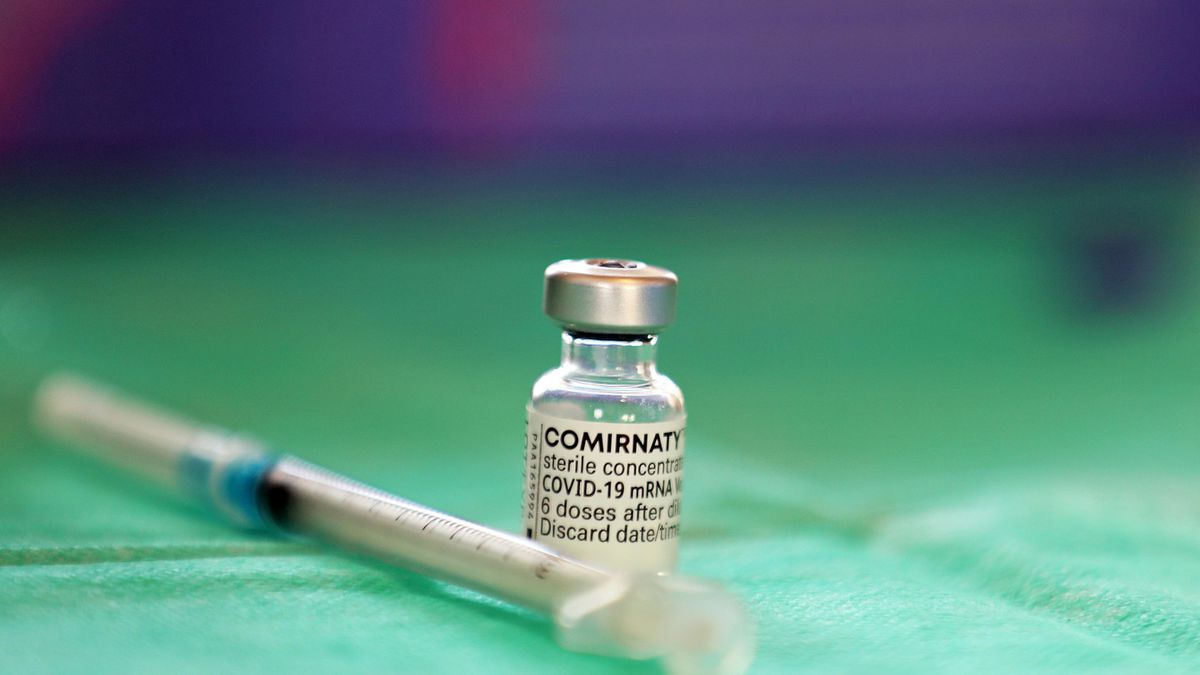12-Week Gap Between Pfizer Vaccine Doses Generates Higher Antibody Response, Study Finds
Share to FacebookShare to TwitterShare to LinkedinTopline The Pfizer-BioNTech Covid-19 vaccine generates a significantly more robust antibody response in older people when the second dose is delayed to 12 weeks after the first, according to a British study released on Friday, a finding that U.K. public health officials believe vindicates their approach of prioritizing the rollout of the first dose.
The Pfizer-BioNTech vaccine produces a more robust antibody response in older people when the gap … [+] between its two shots are extended to 12 weeks, a new study found.
NurPhoto via Getty Images Key Facts The Birmingham University study—which has not yet been peer reviewed—found that delaying the second dose to 12 weeks led to an antibody response that was three-and-half times larger than when vaccine doses were kept to the standard recommendation of three weeks apart, Reuters reported.
Three week intervals between the doses, however, generated a higher peak T-cell response compared to the delayed dosing strategy and scientists believe T-Cells may be a marker for long-term immunity.
The study examined 175 people in the U.K. aged between 80 and 99.
The authors of the study have warned against drawing conclusions on which dosage strategy provides better protection.
Public Health of England, however, said the study was further supportive of the British government’s approach of delaying the second dose of the shots while prioritizing a large-scale rollout of the first dose, the Reuters report added.
Key Background Early during its vaccine rollout process, the U.K. government extended the interval between the two shots to 12 weeks. This was done to ensure that a large number of people could get their first dose early, offering them some protection against Covid-19. BioNTech, which developed the shot with Pfizer, recommends three weeks between its two doses and previously said that there was no data to back up the delayed strategy. The 12-week gap, however, has allowed Britain to have one of the fastest rollouts, with nearly 70% of its adult population receiving at least one dose, according to government data. Recent data released by South Korean health officials also found that the first dose of the Pfizer-BioNTech shot is nearly 90% effective in preventing Covid infection two weeks after it is administered—although it is likely this number will be lower in countries where more infectious variants of the virus are prevalent. This new data could allow countries in Asia with sluggish vaccine rollouts to consider a strategy similar to the U.K.’s.
Tangent Amid a crippling shortage of vaccines, while the second wave of the pandemic rages through India, the country’s government has decided to extend the gap between administering its two AstraZeneca vaccine doses from the current 4-8 weeks to 12-16 weeks.
Key Background Delayed second Pfizer COVID-19 shot produces more antibodies (Reuters)
Full coverage and live updates on the Coronavirus












 Bitcoin
Bitcoin  Ethereum
Ethereum  Tether
Tether  XRP
XRP  USDC
USDC  Solana
Solana  TRON
TRON  Figure Heloc
Figure Heloc  Lido Staked Ether
Lido Staked Ether